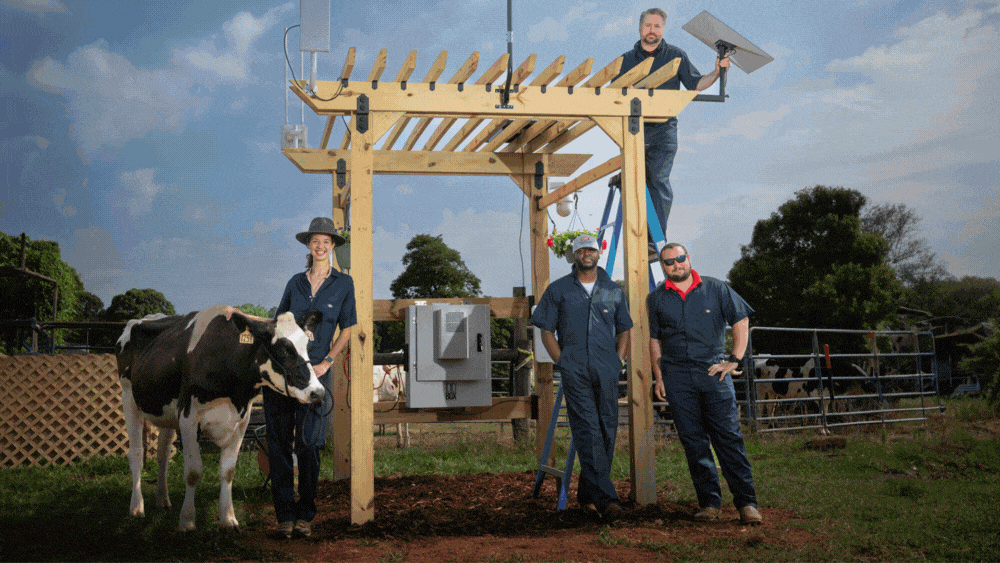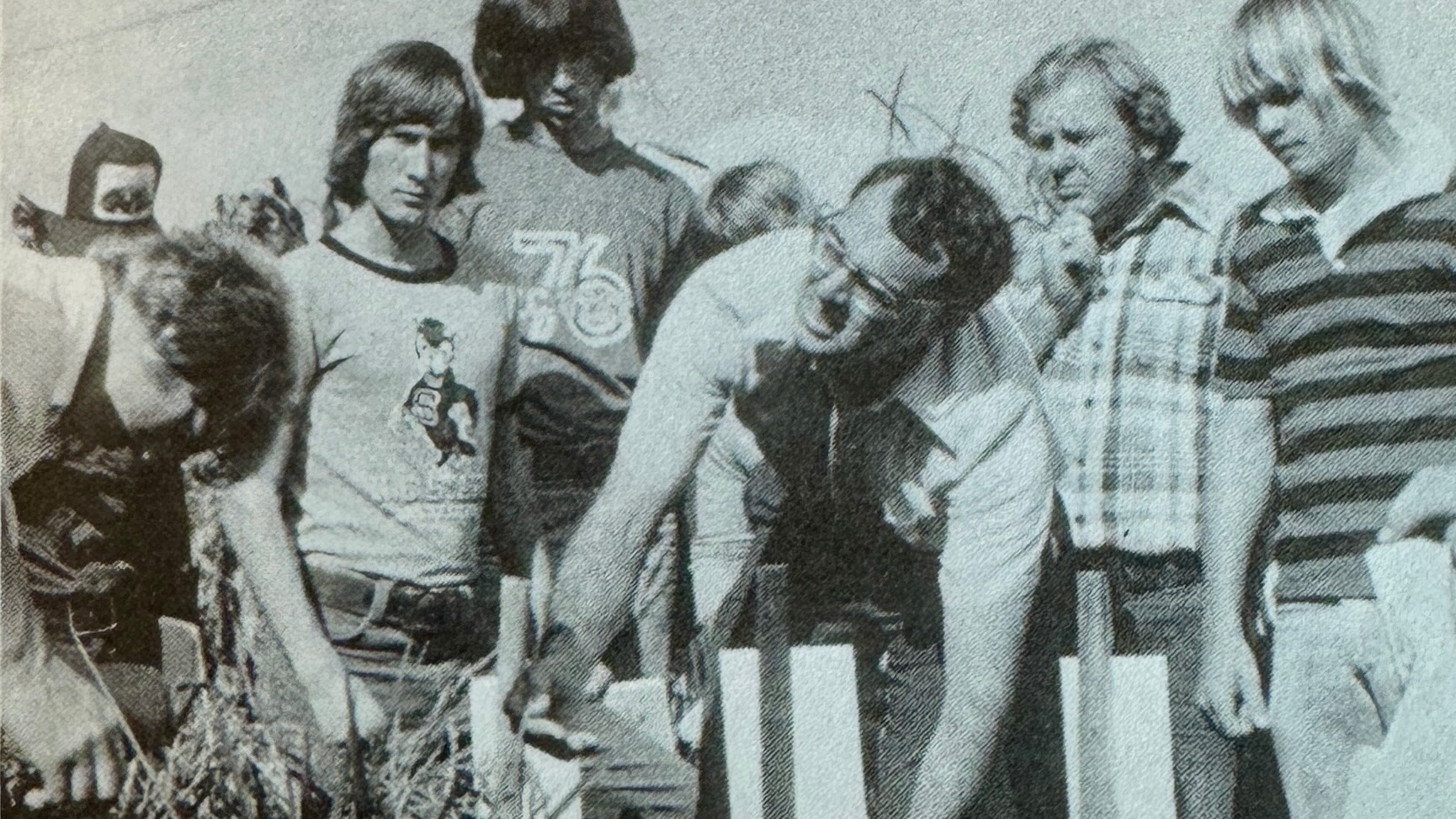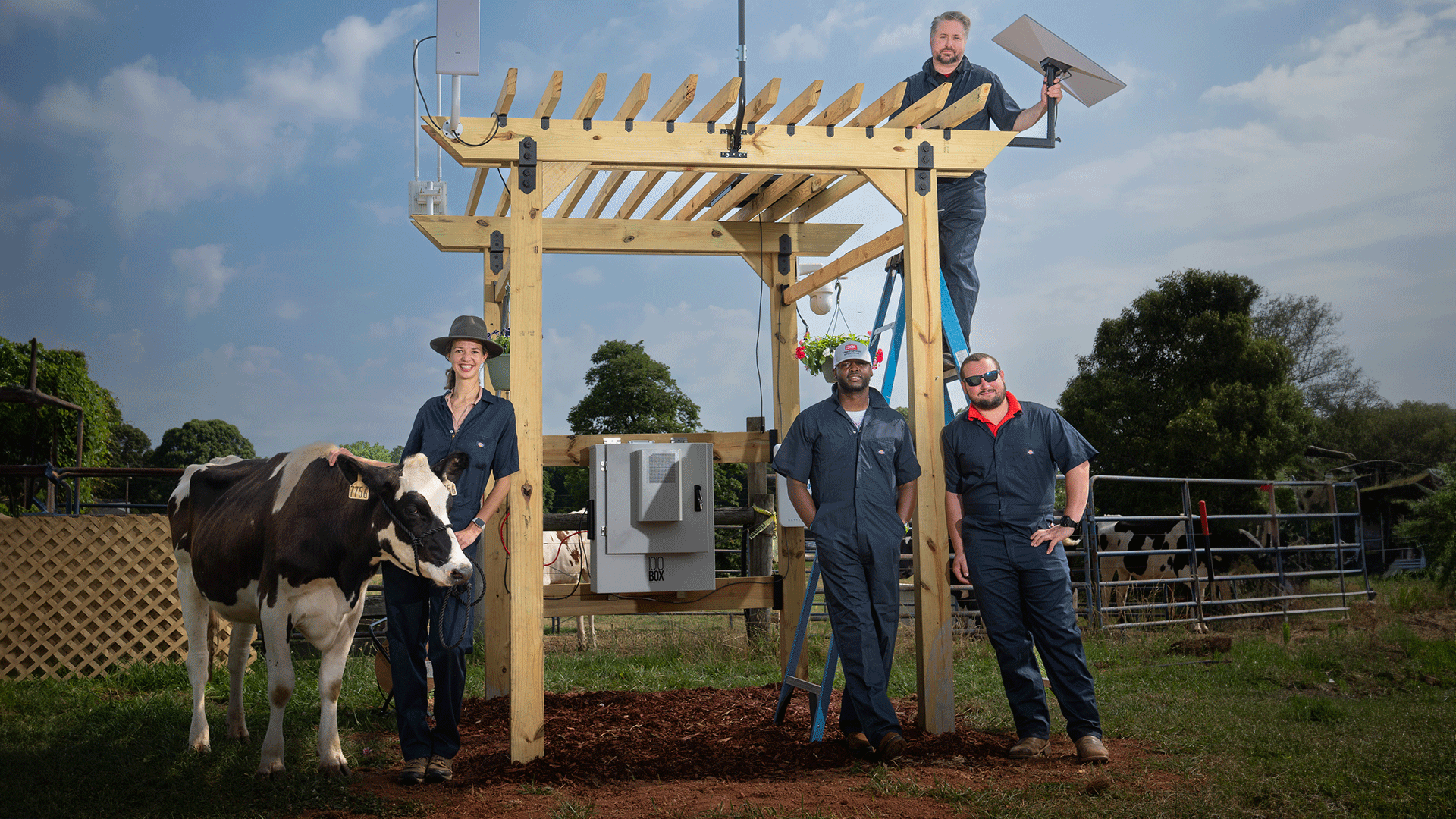Digging In
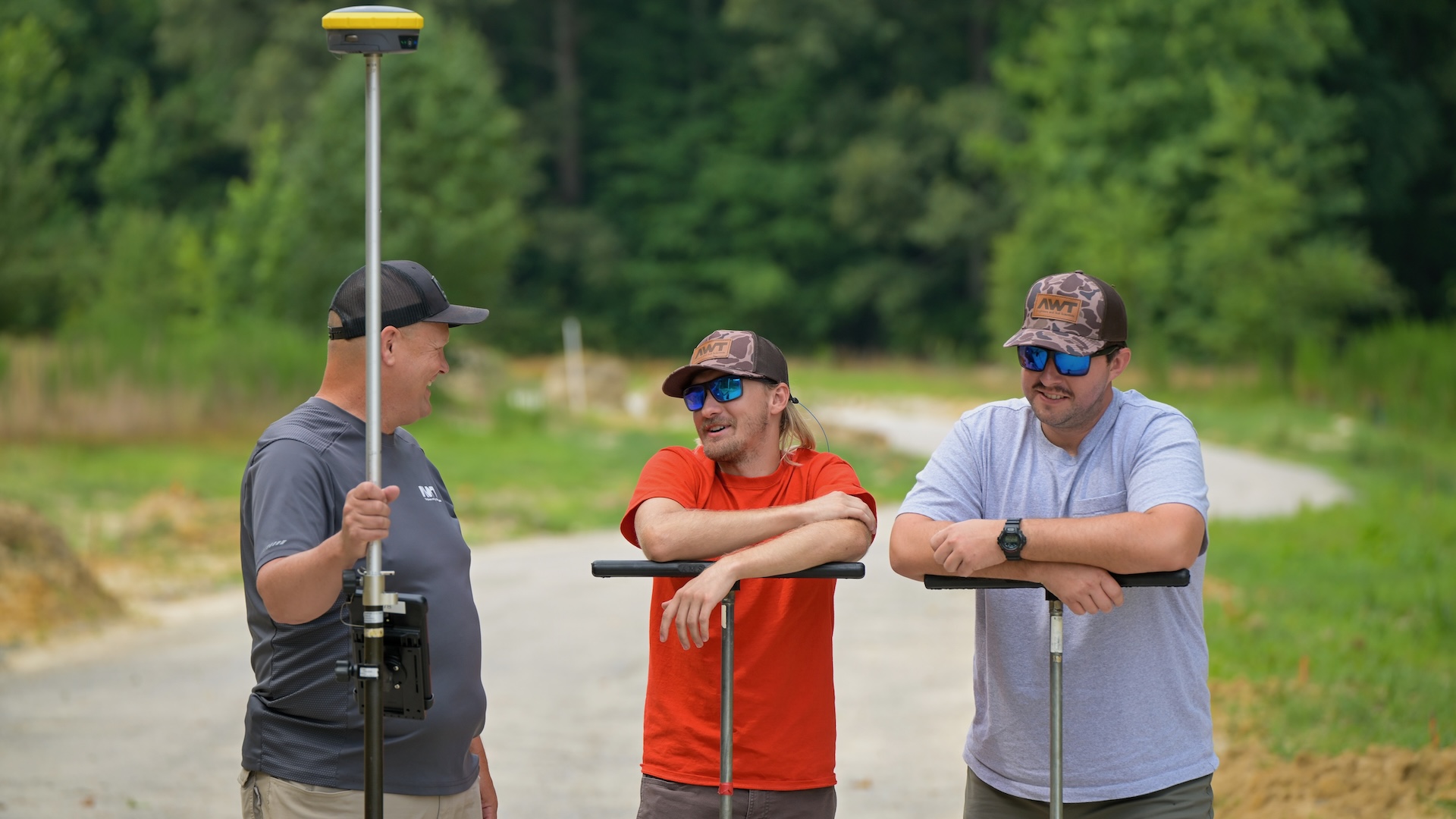
Finding a career wasn’t an exact science for Trent Bostic. His brother was attending NC State when Bostic, who served in the Marines, decided to join him on campus in 2010.
Growing up, Bostic had participated in FFA and worked on farms near his hometown of Lake Waccamaw, North Carolina. Those experiences came to mind as he chose a major.
“I got interested in water quality, water management, wastewater stuff,” he says. “So I narrowed it down to geology or soil science, and rocks didn’t really interest me that much.”
“I got interested in water quality, water management, wastewater stuff. So I narrowed it down to geology or soil science, and rocks didn’t really interest me that much.”
– Trent Bostic
Bostic chose to major in soil and land development, an option at that time in the College of Agriculture and Life Sciences. Midway through his bachelor’s degree, he applied for an internship with Agri-Waste Technology Inc. (AWT), based in Apex, North Carolina.
AWT, which then only had a handful of employees, offered him a broad range of experiences with agricultural, industrial and residential wastewater projects, and a professional path.
“I graduated in December 2014, and they hired me on immediately,” says Bostic, now a licensed soil scientist who manages AWT’s Garner office and supervises a group of interns at that location.
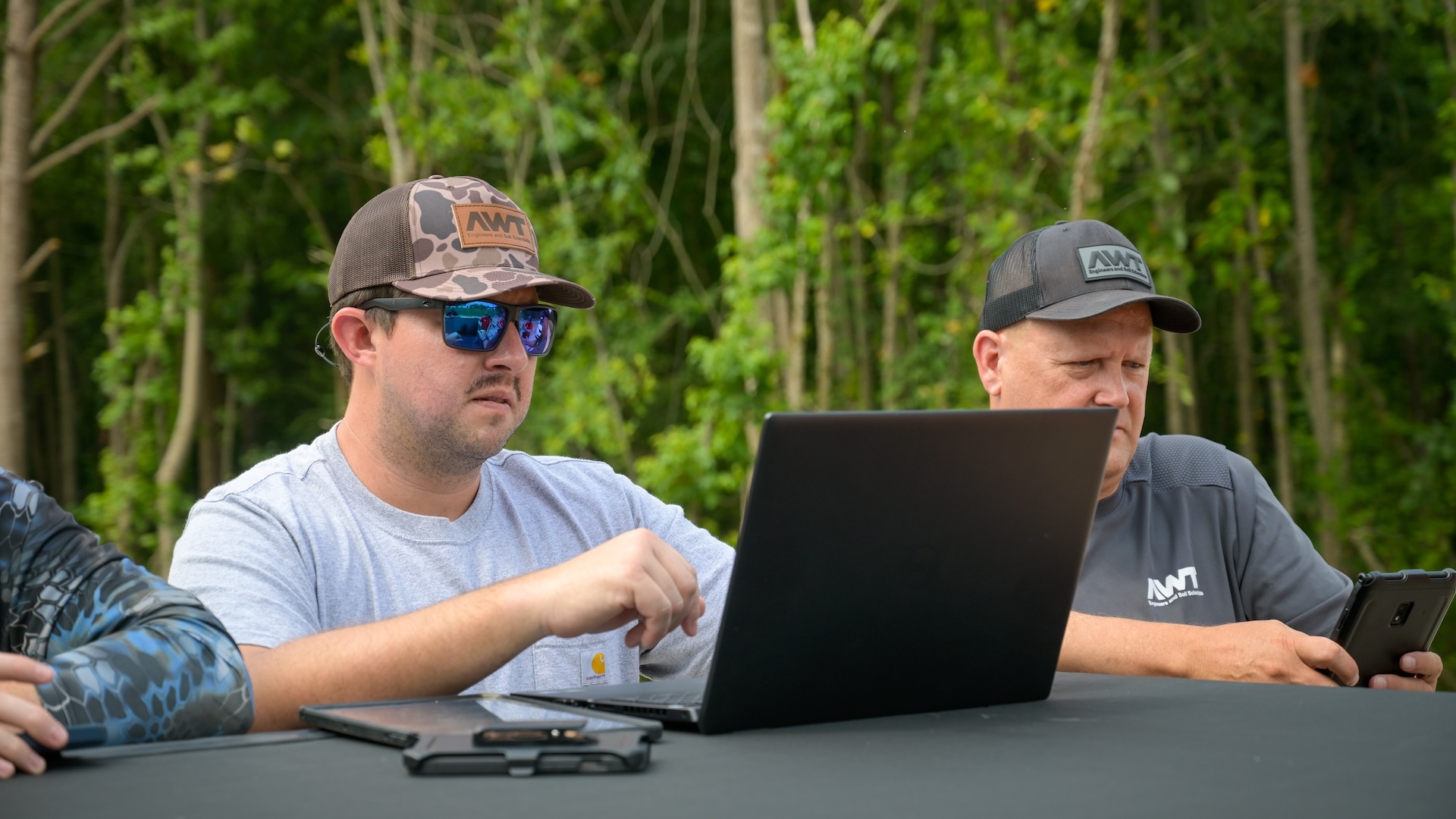
“I’m a big believer in hands-on training and leading by example,” he says. “The way I learned best was by someone showing me what to do and then turning me loose and letting me do it. And then if I had an issue or a question, I could come and ask.”
Wolfpack-Friendly Workplace
Since Bostic went to work at AWT, the company has grown from five to 50 employees. According to AWT President Jeff Vaughan, seven staff members are former interns.
Whether or not they become employees, aspiring soil scientists who complete an AWT internship learn about opportunities in private industry in addition to those in government agencies, crop consulting and academic research.
AWT also supports undergraduate students on NC State’s Intercollegiate Soil Judging Team.
“Growing food and managing waste are essential public health needs and essential environmental needs,” Vaughan says. “We’ve got to keep people safe and healthy, and we’ve got to take care of our resources.
“I want to promote soil science as a career because it is so essential, you can make a decent living at it, and it’s very satisfying to know what you’re doing is helping people meet a basic human need.”
– Jeff Vaughan
“I want to promote soil science as a career because it is so essential, you can make a decent living at it, and it’s very satisfying to know what you’re doing is helping people meet a basic human need.”
Like AWT itself, the internship program has evolved over the years, becoming larger and more structured, with 13 interns working at the firm’s offices in Apex, Garner and Salisbury. Interns submit goals, take field trips, complete a required number of projects and compile a final report about their experiences.
The internship program is rooted in relationships. Vaughan earned his Ph.D. in soil science at NC State at the same time as David Crouse, who went on to join the Department of Crop and Soil Sciences as a faculty member and director of undergraduate programs. Crouse moved to a new role this year as associate dean and director of Academic Programs in CALS.
Connections to AWT have grown to include academic advisors in soil science, as well as faculty in biological and agricultural engineering at NC State. AWT also makes regular visits to campus career fairs.
“It’s about the bluest white-collar job you’re ever going to do because there’s a significant amount of physical labor and being outside.”
– Jeff Vaughan
When he interviews prospective interns or employees, Vaughan looks for people with problem-solving abilities, communication skills and a strong work ethic.
“It’s about the bluest white-collar job you’re ever going to do because there’s a significant amount of physical labor and being outside,” he says.
Firsthand Experience
The combination of fieldwork, office time and Wolfpack camaraderie appeals to students like Jordan Harris, an intern with AWT for nearly 18 months. The NC State senior will finish his bachelor’s degree in crop and soil sciences with a concentration in soils in December.
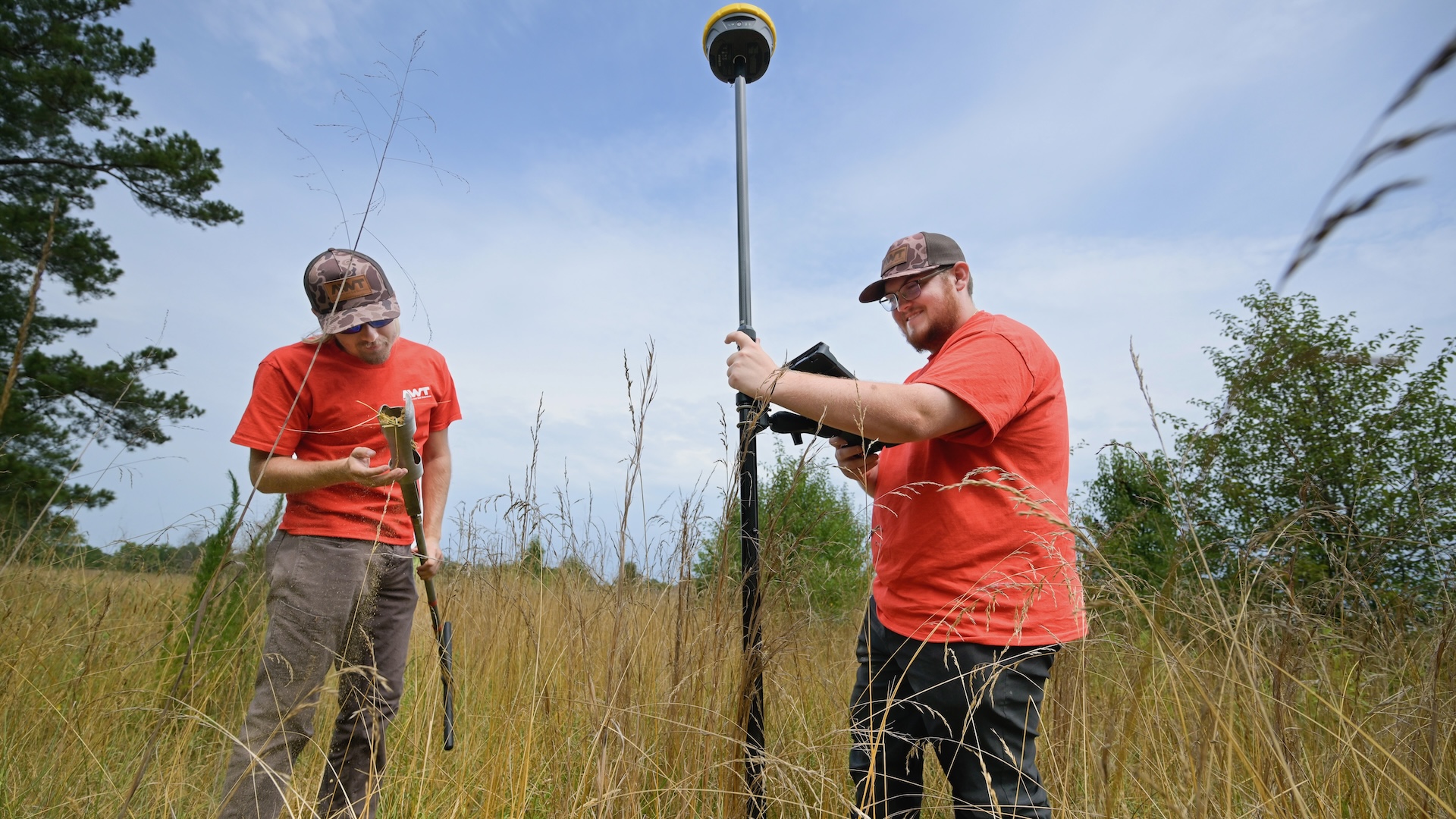
“I’ve loved every second here at State,” he says. A high point was being part of a soil judging team that placed fifth in the nation this spring.
A hands-on learner who grew up on an Angus cow-calf operation in Chatham County, Harris transferred to NC State after completing an associate’s degree. His internship has included trips to a trade show and a Natural Resources Conservation Service lab, and plenty of on-site experience with installing systems and inspecting projects.
“I’ve loved every second here at State.”
– Jordan Harris
He’s collaborated with staff engineers and learned how to communicate with clients. Going into his final semester, Harris feels optimistic.
“I think the internship is invaluable. I’ve met so many people and have so many connections now that I never would have thought I’d have. It’s great!”
- Categories:
